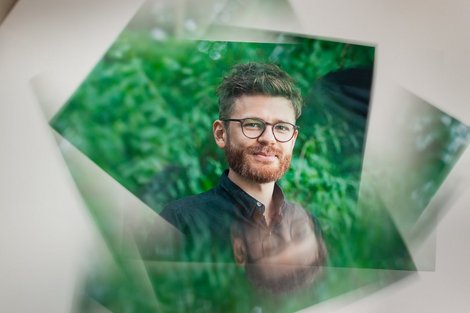New university courses for a sustainable world
Saxony-Anhalt’s universities focus on the global challenges of our age

Today’s students are the decision-makers of tomorrow. As they take up leading positions in industry and the economy, in public administration or even companies of their own, it is largely they who will determine the technical standards and quality of life of our industrial information society. They will have to face up to the global challenges of our age – in particular, climate change, scarcity of resources, and intergenerational equity. In order to prepare students for this social responsibility, universities in general and universities of applied sciences in Saxony-Anhalt have incorporated the concept of sustainability firmly in their teaching. In subjects where renewable raw materials, the circular economy and flexible energy systems have an important role to play, these topics are scientifically explored and included in the course content.
Making a mark with sustainability certificates
The Otto von Guericke University (OVGU) Magdeburg is introducing a new, interdisciplinary course on sustainability. Students of all university departments can gain a Sustainability Certificate from the Otto von Guericke University (SCO), setting themselves apart from the competition on their future career path. The course working towards this certificate focuses on three key subjects, Basic Principles of Sustainability, Economics and Technology, and Society and Politics. Work on creating further interdisciplinary courses on sustainability is underway, to add to those already on offer. A list of courses on the various subjects is published at the beginning of each semester.
The Sustainability Certificate is intended for students from all departments, and aims to endow them with additional specialist skills in the field of sustainable development. This term refers to development that safeguards quality of life for current generations, while simultaneously preserving the means for future generations to exist and live their lives freely.
The SCO provides additional proof of expertise in the job market, for these days knowledge of sustainable development is in demand in every branch of industry, research and the economy. So far, the OVGU is the only university to offer a sustainability certificate of this kind.
Green innovations from the world of chemistry
“Study green subjects today for a sustainable world tomorrow.” This is the slogan of the Merseburg University of Applied Sciences (HoMe), which offers a bachelor’s course in Green Engineering – Sustainable Design It combines interdisciplinary expertise in energy technology and material conversion through processing, and teaches engineering methods that are vital for sustainable business. Key subjects covered are process engineering, environmental engineering, energy technology and automation engineering. In particular, the prospective engineers taking this interdisciplinary course learn how to conduct life cycle analyses and understand, evaluate and optimize processes in terms of their sustainability. Then, in their future professional fields they can help to resolve issues concerning the use of renewable energy and raw materials. Research focuses on achieving the major future goal of a completely circular economy using renewable energy and renewable raw materials, aimed at zero waste production.
In the CHE ranking – Germany’s national league table of universities of applied sciences – the Green Engineering course ranks very highly with top marks. The traditional bachelor’s course in Chemical and Environmental Engineering has also enjoyed top marks for years. It is certified as providing a sound education in the classic fields of material conversion through processing and environmental and process engineering.
The Applied Chemistry bachelor’s course lays the foundations for innovations in chemistry, which are extremely important for many aspects of sustainable development, including environmental protection, fighting disease, energy supply and, last but not least, the development of new materials.
Reshaping the world of work
Students taking courses in sustainability have fantastic career opportunities in Saxony-Anhalt, in particular – which is undergoing a structural transformation from a former coal mining region to a welcome landscape for research and green hydrogen. Here, the conversion and storage of renewable energy and the development of innovative materials are the key topics of the future.
The Magdeburg-Stendal University of Applied Sciences (h2) has set out its goals under its “h2 active for climate protection and sustainability – h2 declaration on the development of climate targets” project. “Help the environment in order to help the people of tomorrow” – under this call to arms, the Magdeburg-Stendal University of Applied Sciences offers bachelor’s courses in Water Management, Recycling and Disposal Management, and a master’s in Engineering Ecology that focus on sustainability in keeping with the transition from the waste economy to a resource economy. These courses provide students with a scientific basis for planning sustainable resource management, the renaturalization and restoration of ecosystems, and planning decentralized supply and waste disposal concepts, for example. Furthermore, the Sustainable Business Management bachelor’s course gives students a comprehensive foundation in business management, with a particular focus on future-oriented topics. For the world of work is changing, too. Companies are responsible not only for economic success, but also for the social and ecological impact of their activities. The Harz University of Applied Sciences is preparing the next generation for this task with its bachelor’s course in Sustainable Management and Entrepreneurship. This degree gives students the tools to build and strategically develop a company on sustainable foundations. Digitalization is another topic covered by this course, because data, too, is a future raw material.
Innovation, project, production and finance managers, sustainability specialists, management consultants, or founders of their own startup: graduates of these courses will be empowered to follow completely new paths in responsible positions – sustainably, innovatively and digitally.
Author: Kathrain Graubaum/IMG Saxony-Anhalt
